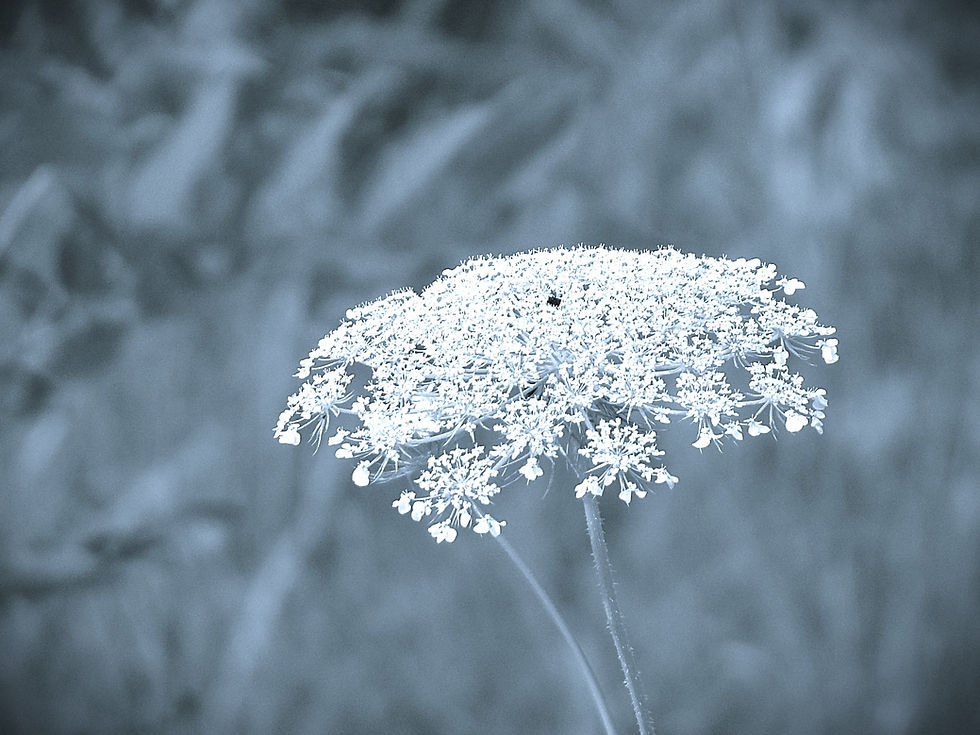Touch/Either/And/Or/Adoration by Steven Baird
- May 26, 2022
- 3 min read

Birdie remembered the drive, the churlish surface of old gravel and pockmarked blacktop, the red and silver maples that idled by. Ray Price was singing "Heartaches by the Number” on the radio; her mother: he has such a sober voice, don’t you think, like a man in real pain? The rain came next, and it scoured the windows and blurred the long cortège of fields and side roads and the dire barns.
Goddamn it, she said, and she cut the song off. I’m sorry, baby, but your father’s an ass. I told him the car needed new wipers, yet here we are. She pulled over and hoped they were far enough off the road. He was often critical of her driving skills, she said, and she suspected he might be right half the time.
Birdie was six years old, and her mother naming her father an ass was nothing new. It had recently become just another disaffected nickname, like ‘pig head’ or ‘insensitive numpty’. Her mother (formerly of Pittsburgh, now of Sackets Harbor, was how she put it when asked) was a well-regarded socialite, whatever that meant. Presumably, it had something to do with all the organized luncheons she attended, or the presentation of martinis to the important men who wore golf pants and called their wives ‘little darlin’. Birdie had no reason to doubt her mother’s propriety, but there were moments when she saw her as a frail kitten, meticulously folding herself in half just to reach an earring that rolled under a sideboard. Her tall auburn beehive would collapse under the stress, but when said earring was collected, or lost key recovered, or makeup discretely reapplied, her ‘do would magically reassert itself, like a Bozo bop bag.
He knew we had hair appointments, she said, and by ‘we’ she meant Daughter would tag along, receive a quick bob, and then receive a penny for the new gumball machine. Birdie, already a beauty parlor veteran, knew most of the good slang, knew who the ‘maladroit bitches’ were, who screwed whom after divorce papers were signed, knew the pet names of the pool boys who suddenly earned a shiny new house key. She kept these things to herself because they bored her. The conversations were always the same, the names regularly changed, and the tone of the (sometimes) whispered conversations did not quite fit her mother’s career definition. The words sounded bitter and mean, and she wondered how often her father’s name had slithered between the tittering.
The sound of rain, meantime, became a snare drum roll, and it was hard to hear what she was saying.
... know he’s never going to touch…
... and if I ever see either of them that close again….
... and you know who else I….
... or so help me God, I….
...oh, I know he adores you, baby, but….
The rain was suddenly shut off by the not-rain of an arid, mute sky, just like that, like a light switch or the dim remainder of a half-dream. And clearly: Oh, Birdie, what in the world am I going to do without him?
Those were real tears, without artifice. She had never seen her mother’s face so naked, her upper lip so slimed with snot, her cheeks so splotched with tears. It broke her heart in a way that made everything real.
Goddamn war, she whispered, and cleaned herself up with a tissue and a bit of magic from her purse compact. Her beehive hair, limp from the humidity, had fallen apart and drooped onto her shoulders. It was untidy and curly and quite pretty. Without the severity of her tortoise-shelled glasses, the depth of green in her eyes was remarkable, their alertness and intelligence startling. Birdie wanted to tell her she was a beautiful woman, someone who finally appeared and acted real to her, and that it was such a relief, such an enormous relief, to see who was hiding behind the performances.
Birdie couldn’t say those things because she couldn’t properly articulate them. And, of course, her mother would likely take it the wrong way, as if the words were intended as an insult.
Goddamn war, Birdie parroted instead, and her mother smacked her hand, hard.
Don’t you dare say that at the funeral, young lady, she said, and the smack became a pat became a reassuring squeeze.
They waited a few more minutes to see if the rain would resume, but it did not. Faron Young was on the radio now, singing Hello to the walls. Birdie’s mother flawlessly reassembled her hair, and then they drove, thoughts to themselves, a little further down the road to where people were probably already waiting.





Really enjoyed this. The emotion is observed, tempered through Birdie’s eyes, but so raw for the reader as you realize the unfolding revelation of the scene. Thank you.
Loved this peek into Birdie's life. A beautifully written character sketch.
Absolutely, heartbreakingly beautiful! Every bit of this was so rich and full of detail, and the end, my goodness. Wonderful read. Ought to be a novel! I'd read it in a heartbeat. Superb writing!